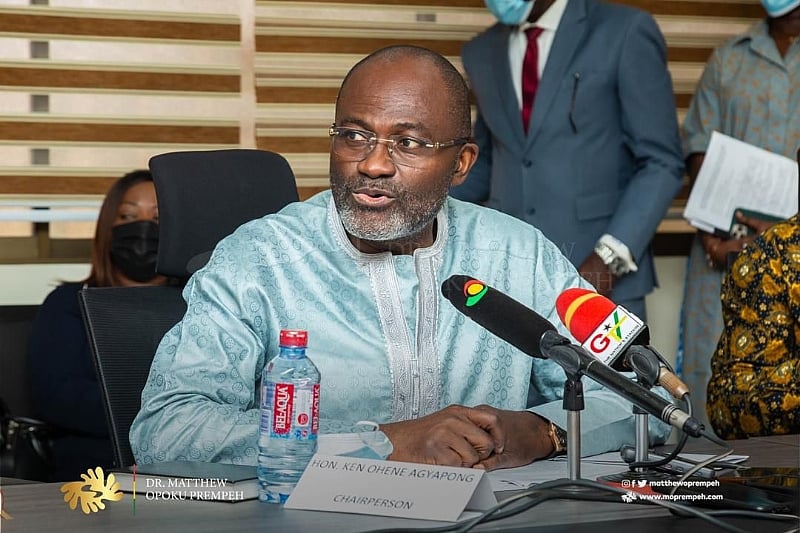The attempted arrest of Reverend Ntim Fordjour, Member of Parliament for Assin South, by the National Investigations Bureau (NIB), has ignited a firestorm of controversy, drawing sharp criticism from various quarters, most notably from Kennedy Ohene Agyapong, the former Member of Parliament for Assin Central. Agyapong, a prominent figure known for his outspoken nature and previous role as Chairman of Parliament’s Defence and Interior Committee, has vehemently condemned the NIB’s actions, characterizing them as an attempt to stifle dissenting voices and suppress legitimate concerns about national security. He has framed the incident as a dangerous precedent that undermines the very foundations of Ghana’s democracy, urging the state to refrain from using its institutions to intimidate and silence those who dare to speak truth to power.
Agyapong’s critique goes beyond merely defending Reverend Fordjour’s right to express his views; it delves into the broader implications of such actions on the health of a democratic society. He argues that while political disagreements are inevitable and even healthy in a pluralistic system, resorting to intimidation tactics to quell dissent creates an environment of fear and mistrust, eroding public faith in democratic institutions. This, he warns, is a slippery slope that can ultimately lead to the erosion of fundamental freedoms and the suppression of critical voices essential for holding power accountable. He stresses the importance of fostering an atmosphere where open dialogue and robust debate are encouraged, even on sensitive issues like national security.
The former MP further lauded the Minority caucus in Parliament and other Ghanaians who rallied to Reverend Fordjour’s defense, highlighting their solidarity as a testament to the resilience of Ghana’s democracy. He sees their actions as a powerful demonstration of the collective responsibility to protect democratic values against any encroachment, emphasizing that the strength of a democracy lies in the willingness of its citizens to stand up for one another in the face of perceived injustice or oppression. This collective action, he argues, sends a clear message that attempts to silence critical voices will not be tolerated.
At the heart of Agyapong’s argument is the unwavering belief that Reverend Fordjour, as a representative of the people, has not only the right but also the duty to raise concerns about matters of national security and the future of the country. He portrays Fordjour as a man of conviction, courageously speaking out on issues that he believes are vital to the well-being of the nation. This, Agyapong insists, is not a crime but rather a fundamental aspect of representative democracy. The attempt to arrest him, therefore, is not just an attack on an individual but an assault on the very principles of democratic representation and accountability.
Agyapong’s condemnation of the attempted arrest underscores a broader concern about the potential misuse of state institutions for political purposes. He implicitly warns against the dangers of allowing such institutions to become tools for silencing opposing viewpoints or suppressing legitimate dissent. He calls for a reaffirmation of the principle that these institutions should serve the interests of all citizens, regardless of their political affiliations, and uphold the rule of law impartially. This requires constant vigilance and a commitment to holding those in power accountable for their actions, ensuring that state institutions are not weaponized against political opponents or used to stifle critical debate.
The incident involving Reverend Fordjour and the subsequent reaction from Kennedy Agyapong serves as a stark reminder of the fragility of democratic institutions and the constant need to safeguard them against abuse. It highlights the importance of a vibrant civil society, a robust media, and a vigilant citizenry in holding power accountable and defending the fundamental rights of all citizens, including the right to express dissent without fear of reprisal. The incident also underscores the need for continuous dialogue and engagement to strengthen democratic values and institutions, ensuring that they remain truly representative and responsive to the needs and aspirations of all citizens.














